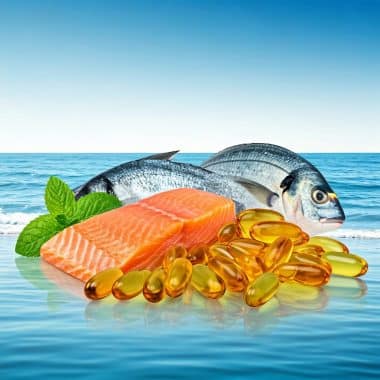Not All Heart Supplements Are Created Equal… Here’s What to Take and What to Skip
Heart disease remains the leading cause of death around the world. While a healthy diet, exercise, and regular sleep are the foundation for cardiovascular health, many people turn to supplements for added support.
Some work. Others don’t. And a few may even cause harm. This article explores research-backed supplements that show real promise, starting with one that comes straight from the vineyard.
Full-Spectrum Red Wine Extract: Nature’s Heart Tonic
You’ve probably heard that a glass of red wine may be good for your heart. That’s because red wine is packed with potent plant compounds called polyphenols, especially resveratrol. But scientists now believe the real magic isn’t in one isolated molecule… it’s in the synergy of many natural compounds working together.
That’s where full-spectrum red wine extract comes in. It captures the entire blend of heart-supporting molecules… without the alcohol.
According to a study in the Journal of Cardiovascular Development and Disease, red wine polyphenols can help raise good HDL cholesterol and reduce blood clotting risk, both of which support a healthier cardiovascular system.
Some red wine extracts are standardized to include rare polyphenols like quercetin, anthocyanins, and catechins, which together help reduce inflammation, improve blood vessel function, and neutralize harmful free radicals.
CoQ10: The Cellular Energy Booster
Your heart never rests… it beats about 100,000 times a day. That kind of nonstop work requires a lot of cellular energy. Coenzyme Q10 (CoQ10) is a compound your body naturally produces to help generate that energy. But as we age, or if we take statin drugs to lower cholesterol, CoQ10 levels can drop.
The Q-SYMBIO study, a landmark clinical trial, found that supplementing with CoQ10 in patients with heart failure significantly reduced the risk of major cardiovascular events and death. Participants took 100 mg three times a day.
Even if you don’t have heart failure, adding CoQ10 may help reduce blood pressure and improve arterial flexibility. However, it’s important to note that CoQ10 can cause mild side effects such as stomach upset, loss of appetite, nausea, and diarrhea. It’s also commonly used to counteract statin-related muscle fatigue. I’ve never noticed any of these possible side effects though.
Omega-3s: The Heart’s Favorite Fat

Fish oil supplements contain omega-3 fatty acids, particularly EPA and DHA, which help lower triglycerides, reduce inflammation, and support overall heart rhythm stability.
A meta-analysis published by the American College of Cardiology concluded that omega-3 supplements are linked to a reduced risk of dying from heart disease.
If you don’t eat fatty fish like salmon or mackerel two to three times a week, a quality fish oil supplement can be a smart move.
Plant Sterols and Stanols: Natural Cholesterol Blockers
Plant sterols and stanols are compounds found in fruits, vegetables, and nuts that closely resemble cholesterol. When consumed in high enough amounts—around 2 grams per day—they compete with cholesterol for absorption, significantly reducing LDL (“bad”) cholesterol.
The National Cholesterol Education Program recommends them as part of a heart-healthy lifestyle. They’re available in supplement form or are found in fortified foods like margarine and orange juices for example.
Turmeric and Curcumin: Fighting Inflammation
Turmeric’s active compound, curcumin, is a natural anti-inflammatory and antioxidant. Some research shows it may modestly lower blood pressure and improve blood vessel function. One review found that curcumin supplements helped reduce systolic blood pressure (the top number) in people with metabolic syndrome.
While not a miracle cure, turmeric could be a helpful addition to your daily routine if you’re looking to fight inflammation naturally.
Selenium: Small but Mighty
Selenium is a trace mineral essential for heart function, partly because it supports glutathione, one of your body’s most powerful antioxidants.
A recent study published in Scientific Reports showed that moderate selenium intake was associated with a reduced risk of cardiovascular disease.
However, more is not always better. Too much selenium can be toxic, so it’s best to aim for safe dietary levels or low-dose supplements if needed. Some research says you can take up to 400 mcg per day. (I take 200 mcg per day) Be aware and cautious about potential risks when considering supplements.
What to Avoid: Supplements That Don’t Help (or May Harm)
It’s easy to think more is better when it comes to supplements, but some widely marketed products don’t live up to their claims for heart health. (They do have other benefits, however.) A major study from the American Heart Association found that plant sterols and fish oil were not as effective as first thought at lowering LDL cholesterol.
Other substances like bitter orange, yohimbine, and licorice root can actually raise blood pressure or interfere with heart medications, so be careful there. (I tried taking yohimbe one time, and it did raise my blood pressure substantially)
Always read labels carefully and talk with your doctor before starting a new supplement.
The Bottom Line
Supplements can’t replace good habits like healthy eating, exercise, sleep, and stress management.
But the right ones… especially full-spectrum red wine extract, CoQ10, and omega-3 fatty acids… seem to hold remarkable potential to give your heart the extra support it needs, inspiring you to take heart… and take action… for healthier days ahead.
Make sure you choose products backed by real science, and don’t be afraid to ask your healthcare provider for guidance. When combined with lifestyle improvements, these supplements may help keep your heart beating strong for years to come, giving you the confidence that you’re making the right choices for your heart health.









